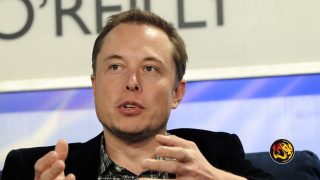
By Stefan J. Bos, Chief International Correspondent Worthy News
MEMPHIS, USA (Worthy News) – Billionaire Elon Musk has unveiled an Artificial Intelligence (AI) training center with the world’s fastest supercomputer “to understand the universe”.
Musk’s xAI Corporation completed the assembly of a mammoth AI supercomputer named “Colossus” with 100,000 graphics processing unit (GPU) cards from tech giant Nvidia.
Seen as a “beast” by critics and admirers, the computer is part of Musk’s efforts to extend AI worldwide in a move that he predicts “will soon make most jobs obsolete,” requiring a universal basic income for everyone.
Musk officially announced the formation of his xAI venture on July 12, 2023.
He linked the date (7 + 12 + 23 = 42) to the book “The Hitchhiker’s Guide to the Galaxy” by Douglas Adams. In the book, a supercomputer calculates that “the answer” to the ultimate question of life, the universe, and everything is 42.
Musk said his company’s mission is “to understand the universe” with a computer now believed to be faster than that used by the U.S. government.
Critics argue that the Colossus project faces environmental and resource concerns from the Memphis community.
Worthy News learned that the supercomputer’s operation is expected to consume 1.3 million gallons (nearly 5 million liters) of water daily and up to 150 megawatts of power per hour at peak times (3.6 million kilowatt-hours per day).
Experts say this energy consumption is equivalent to the daily electricity use of about 120,000 average American households daily or 43.8 million households manually.
xAI says it is “committed to mitigating these impacts” by planning a new power substation and a gray-water processing facility.
These steps aim to alleviate the strain on local resources, “reflecting xAI’s commitment to balancing innovation with sustainability.”
Musk wants his operation to compete with other AI alternatives and impact how people think and communicate, including through chip implants and language tools, self-driving cars, and perhaps trips to Mars.
Copyright 1999-2024 Worthy News. This article was originally published on Worthy News and was reproduced with permission.
